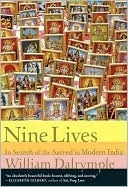In the summer of 1933, a young Harvard classicist named Milman Parry caught a ship to Yugoslavia. Parry set off on his travels intending to prove in the field a brilliant idea he had dreamed up in the libraries of Cambridge, Massachusetts: that Homer’s works, the foundation upon which all subsequent European literature rested, must have originally been oral poems. To study Homer properly, he believed, you had first to understand how oral poetry worked, and Yugoslavia was the place in Europe where it seemed such traditions had best survived.
Welcome back. Just a moment while we sign you in to your Goodreads account.


